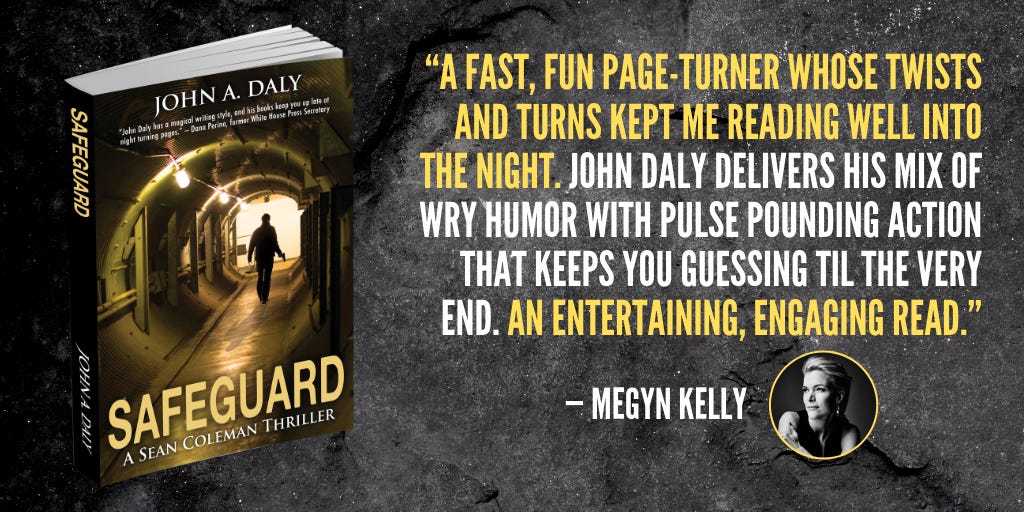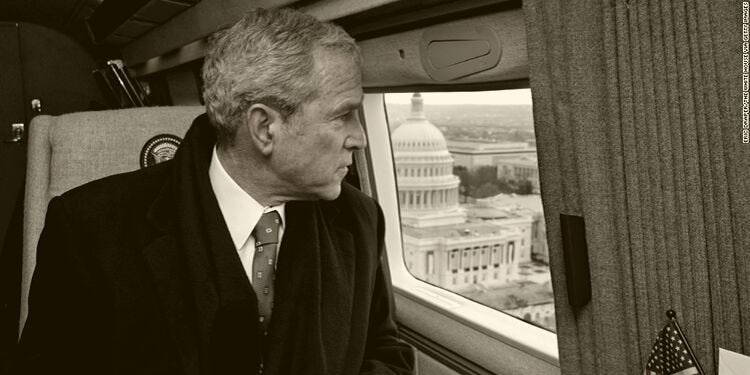Those who’ve been reading my work for a while know that up until the September 11th terrorist attacks in 2001, I was largely agnostic when it came to American politics. I didn’t follow most issues carefully. I didn’t really understand the fundamentals of conservatism and liberalism (outside of their pop-culture caricatures). I didn’t even vote in the first two presidential elections I was eligible to.
I’m by no means proud of my past disengagement and the squandering of my voice in our representative democracy, but I’m also not terribly ashamed of it. I think it’s a natural thing to be more focused on navigating through our free society than working to defend or bring change to it. In fact, I think that’s how most Americans, even now, view our political system.
That might be a tough statement for many to subscribe to these days, considering how political themes have seeped their way into just about every facet of our culture, but the reality is that most people in this country don’t follow or grasp politics the way pretty much everyone who will read this column does. That doesn’t mean, however, that these people aren’t affected and influenced by our politics. They clearly are, and not just in terms of policy.
The demeanor of our political leaders also plays a role — a more significant one than a lot of partisan warriors would like to admit. Though even the political tribes recognize the cultural strain of certain types of behavior and rhetoric, they tend to only worry about it when it comes from the other side. When it's coming from inside the house, it’s largely written off or even defended as a necessary means to an end.
Lost on many in both major political camps these days is the influence and societal good that can come from positive traits such as poise and empathy. When displayed by our elected leaders, they absolutely can have a healing, trickle-down effect on society.
While policies will often divide people, leaders don’t necessarily have to. And contrary to today’s conventional wisdom, I don’t think a massive terrorist attack on our homeland is required to ease our political hostilities.
Like I said, I may have been politically aloof before 9/11, but I do recall how divided our nation was from the 2000 election. That was when an underdog Republican presidential nominee lost the popular vote, but took back the White House with an electoral college win after eight years of Democratic occupancy. I remember the many hard feelings that followed, including the very legitimacy of the election’s outcome being questioned and challenged repeatedly… not just by partisans and people in the media, but also by the losing candidate.
Sounds a bit familiar, doesn't it?
Anyway, I remember something else from back then, a few months after that new president was sworn in. One night, my politically agnostic former self was hanging out in my then girlfriend’s apartment. There was a television on in the living room, mostly serving as background noise. At some point, the evening news began, and a clip was shown of that new president walking with one of his aides across the South Lawn of the White House toward Marine One (the president’s helicopter).
The news anchor was reporting on whatever the president was doing that day. I don’t recall the specifics, but I do remember that it was raining. I remember this because, as the news anchor was talking, the president (one of the most powerful people on the planet) was shown holding a large envelope or folder horizontally above his aide’s head, as they walked, to protect that aide from the rain.
It was an authentic, very simple display of selfless personal concern that compelled me (again, a politically disinterested person at the time) to turn to my girlfriend (now my wife of 17 years) and say to her, “This guy’s good for America.”
It wasn’t just that one incident, of course, that served as a testament to President George W. Bush’s dignity and decency. There were other things, pre 9/11, that I believe helped heal our divided electorate, including Bush’s humbleness in victory, his unwillingness to go low against political opponents, and his work to build relationships with people on the other side of the aisle (even as they trashed him in public).
People will of course point out that Bush ended his presidency 8 years later on a very low note, but it’s also worth remembering that he enjoyed an above-water approval rating from the day he took office until well into the Iraq War, which became a policy-based political liability. Many opponents of the war certainly demonized Bush over the policy, but the policy was the root of the objection… not the man. Not to most people, anyway.
What stands out for me about the Marine One event is that — at the time — it was an example of what Americans really needed to see from our leaders. And it was representative of who our president was. It was a show of genuine character and simple compassion, not politics. It was disarming. And to someone not particularly political, it was also inviting.
Today's politics are uninviting. They turn people off. They're predictably mean-spirited and incessantly tribal.
Case in point, journalist Cokie Roberts passed away this week, and our current president couldn’t even manage to pay his condolences without getting in a dig at her. Needlessly disrespecting people (including the dead) is of course indicative of the Trump presidency, along with several other character defects. Hence, we have a situation in which a president presiding over a historically great economy, without a major military conflict, is disapproved of by most Americans (and has been since the day he took office).
And on the other side, we have a host of Democratic presidential nominees trying to end a Supreme Court justice’s career over a completely discredited accusation...simply because they hope it will give them a competitive political edge. The recklessness goes well beyond that, of course, whether they're attacking the other side with obligatory charges of racism or comparisons to murderous regimes.
This country desperately needs our leaders to start acting like adults, and govern with something other than the fear, resentment, and trolling that we used to only hear from the political fringes. If done at the top, the change will — at least to a degree — trickle down to the electorate...just as it has in the past.
Even if you’re of the belief that one can’t win a campaign without resorting to such tactics (a mistaken belief, in my opinion), we — as these people’s employers — must insist on something better once they’re in office...for the sake of us all.
Sure, many people will continue to argue that the increasingly hostile political environment of the past 20 years calls for political conflicts to be fought like wars. And like in other wars, there’s not a lot of room for decency or compassion. Just loyalty, dedication, and combat…no matter how much damage is caused to the battlefield.
Sorry, but I just don’t buy that narrative. And if we elected better people, few would.
—




